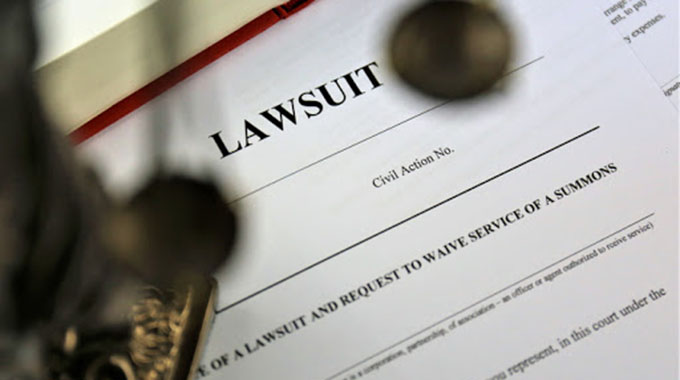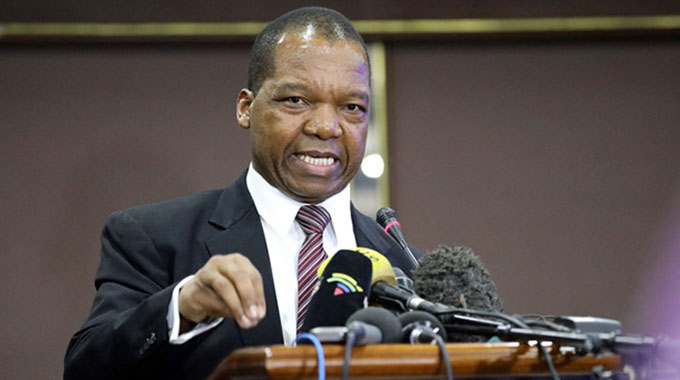Call for specific laws to fight revenge pornography

Fourie Revai
The world and Zimbabwe in particular is witnessing a tremendous rise in the use of smart phones and social media. While there are associated benefits attached to the use of such forms of technology, there are negative consequences such as the spread of revenge pornography which have spread due to this ease in accessing information. Hardly a day passes without the media publishing a story on revenge pornography or other related vices. Revenge pornography refers to the posting of revealing or sexually explicit images or videos of a person on the internet without their consent where people can share or download. It can also be referred to as non-consensual pornography, it has become prevalent in Zimbabwe too, especially on WhatsApp. Sadly, the country does not have specific cyber laws to deal with revenge pornography yet many have fallen victim to such scourge.
Activists view revenge pornography as a form of gender-based violence (GBV).In parts of the world where there’s a great emphasis on female chastity, it is often the victims who end up shouldering the blame and stigma associated with revenge porn. Some societies have gone further to chastise women for engaging in the acts which involve the recording of their intimate details. A 2016 research paper by the Malawi Human Rights Commission and the U4 Anti-Corruption Resource Centre in Norway focused on the phenomenon in Malawi and Uganda and found that revenge porn is broadly seen as “a problem of user naiveté rather than GBV” and as such “women who are perceived as deviating from the norm, for example, by allowing themselves to be photographed naked, are derided and chastised in the court of public opinion for it.”
In Zimbabwe, cases of revenge pornography fall under anti-pornography or anti-obscenity laws. It has been held that the law does not adequately protect victims hence there are growing calls to have independent laws which deal with revenge pornography and its effects. The Censorship and Entertainments Control Act in Section 13 provides that the importation, printing, publishing, manufacturing, displaying, selling, offering, keeping for sale any publication, picture or record or playing pornographic material in public is prohibited.
The law criminalises both the manufacturing and distribution of undesirable content which makes a victim of revenge porn also an accomplice to the crime. In other words the manufacturing of pornographic content is a crime even if it is based on agreement by the parties involved. The Censorship Board created in the Act enforces quality of content to ensure it remains within the bounds of decency. Any import, distribution and publishing of films or other entertainment material must be approved by the Censorship Board.
The penal provisions provided on the Censorship and Entertainments Control Act have been held to be inadequate as to deter the proliferation of revenge pornography. In March 2018, a certain man appeared in the Gweru Magistrates Court after leaking a video in which he was having sex with his former girlfriend and was convicted of circulating pornographic material after trial. The facts were that he recorded the complainant, a policewoman, without her knowledge or permission when the two were having oral sex. He then threatened to release the video when the relationship had soured. As a result of the threat, the victim offered to have sex with him in order to get him to delete the video. However, after having sex, he went on to release the video via WhatsApp. In passing sentence, the Magistrate observed,
“What the accused did was wrong as he decided to leak a sex tape he had taken without the complainant’s knowledge. He is found guilty and is sentenced to pay a fine of $250 and in default three months in prison”.
In some countries with advanced information technology legislation, revenge pornography has been specifically dealt with at law and criminalised. Zimbabwe has no stand-alone revenge pornography laws. There are however civil remedies available to victims who can sue for damages incurred such as humiliation, pain and suffering. In Zimbabwe the Cyber Crimes and Cyber Security Bill is currently underway with public consultations having already been done. The Bill will criminalise the leaking or publishing of nude pictures of former lovers on social media or online.
The Ministry of Information Communication Technology and Courier Services which is sponsoring the Bill confirmed that the public requested for clauses to deal specifically with revenge pornography. The Bill also seeks to criminalise child pornography which is very commendable. The Bill must also address the subject of matter of revenge pornography through the creation of offences related computer system breaches and sharing of information on the internet with the intention of causing harm.
The government is thus implored to speed up the process of enacting the cyber related Bills to ensure the protection of victims of revenge pornography given the popularity of smart phones and social media platforms. If the laws are put in place, this would in the very least encourage victims to openly come out and seek justice. Criminalising revenge pornography is certainly a demonstration of our commitment to gender justice and equity.
For feedback questions and comments please feel free to email [email protected] or to phone our hotline number on +263782 900 900/+263776 673 873 or our toll free on 08080131 and landline(s) +263242 708491/+2630242 706676










Comments